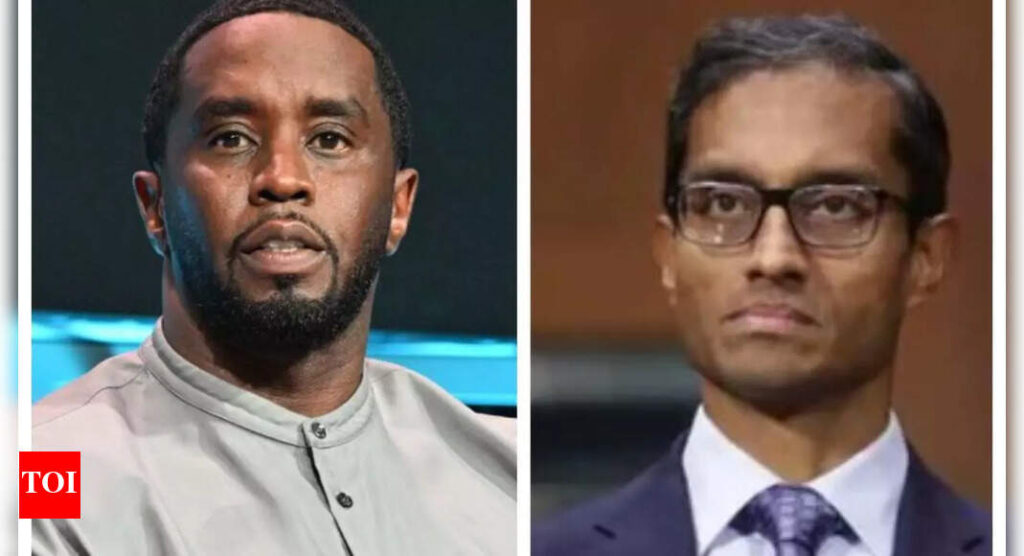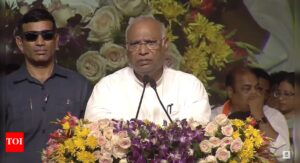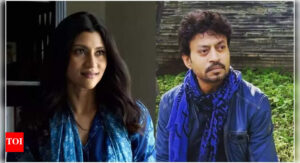Arun Subramanian: The Indian-origin judge who oversaw Sean ‘Diddy’ Comb’s trial – with poise and calm | World News

In courtroom 110 at 500 Pearl Street, New York, where the tragic theatre of power and predation played out in the People v. Sean Combs, it was Arun Subramanian who presided with quiet firmness. A judge of the United States District Court for the Southern District of New York, Subramanian, appointed by President Joe Biden in 2023, has quickly acquired a reputation as both disciplinarian and moderniser — a combination that proved essential in one of the highest-profile celebrity trials of the year.Born to Indian immigrants in Pittsburgh, Pennsylvania, Subramanian’s journey to the federal bench is an archetypal immigrant success story, albeit with the particular intellectual brilliance that sets judicial appointees apart. His parents, Tamil Brahmin engineers who migrated to the US in the 1970s, instilled in him a rigorous respect for education and public service. After an undergraduate degree in computer science from Case Western Reserve University, Subramanian pursued law at Columbia, graduating in 2004.His early career followed the standard elite pipeline: clerkships with Gerard Lynch (then of the Southern District of New York), Dennis Jacobs of the Second Circuit, and finally Ruth Bader Ginsburg on the Supreme Court. From there, Subramanian joined Susman Godfrey, a litigation powerhouse, where he became partner. His work ranged from antitrust to civil rights class actions, representing both corporate giants and underdog plaintiffs — a duality that honed his sense of fairness across hierarchies.At 45, Subramanian is one of the youngest judges on the federal bench. But his demeanour, as visible throughout the Diddy trial, carries the weight of self-assured maturity. Reporters described his style as “adaptable yet firm.” When Mark Geragos, Combs’s unofficial legal adviser, referred to the prosecution team as a “six-pack of white women” on his podcast, Subramanian summoned him for a closed-door rebuke, deeming the remark “outrageous” and warning of its implications for the jury selection process.Yet Subramanian is no grandstander. Unlike some federal judges who revel in courtroom performance, he is known to prefer measured exchanges and procedural discipline over rhetorical flourishes. His time as a Ginsburg clerk appears to have instilled in him a deep appreciation for the law’s ability to serve as both shield and sword, depending on its wielders’ intent.In the Diddy trial, where issues of race, sex, celebrity, and violence collided, Subramanian’s challenge was twofold: ensuring the jury’s impartiality despite public spectacle, and balancing the inevitable theatrics of high-profile counsel with the procedural dignity of the court. Observers note that he succeeded — not by imposing an authoritarian grip, but by gently steering proceedings back to decorum each time tempers flared.The trial ended on July 2, 2025, with a verdict that reflected the legal tightrope Subramanian helped maintain. After thirteen hours of deliberation across three days, the jury found Sean Combs not guilty on the major charges of racketeering and sex trafficking, acquitting him of crimes that could have put him away for life. However, they convicted him on two lesser counts of transportation to engage in prostitution under the Mann Act. It was a mixed verdict that left both the prosecution and defence with partial victories, and a public still grappling with the moral complexities revealed in court.Throughout, Subramanian’s rulings and courtroom management ensured that the trial was conducted with dignity despite its lurid subject matter and intense media scrutiny. His handling of witness anonymity, cross-examination objections, and legal strategy challenges showed a judicial temperament that balanced compassion for victims with rigorous attention to procedural fairness.His Indian heritage is a footnote in his public profile but a source of private pride. In interviews and public appearances, Subramanian has spoken of his parents’ sacrifices, his mother’s insistence on “never cutting corners,” and his father’s near-religious faith in the power of American institutions. It is perhaps this lived understanding of structural aspiration that has made him an advocate for broadening clerkship opportunities to first-generation professionals and minority students.As the Diddy trial fades from headlines, Arun Subramanian remains a judge to watch: young, brilliant, and now tested in the crucible of one of America’s most sensational celebrity trials — a jurist whose quiet command may define the next chapter of the Southern District’s storied bench.








